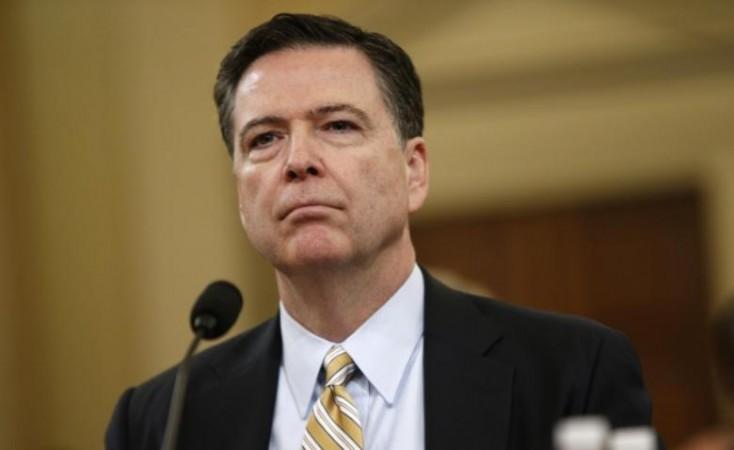
United States President Donald Trump shocked the Democrats and Republicans alike when he fired the Federal Bureau of Investigation (FBI) Director James Comey on Tuesday. The FBI chief was fired two days before he was scheduled to appear before Congress to discuss "worldwide threats."
Comey's abrupt firing, and its timing, has prompted many to suspect whether it was an attempt by the Trump administration to cover-up the Russian investigations?
The FBI director had revealed in March that his agency was investigating possible links between Trump's presidential campaign and Russia, as Moscow sought to interfere in the US presidential elections last year. Comey and the director of the National Security Agency (NSA) had appeared before a congressional committee, stating that their probe into the Moscow links could go on for months.
Comey, during the hearing, had also asserted that Russian President Vladimir Putin was himself involved in the interference. He firmly stated that not only did Putin want Democratic presidential candidate Hillary Clinton to lose the election, he also wanted Republican presidential candidate Trump to win.

According to the New York Times, Trump administration had been looking for reasons to fire the FBI chief and had asked recommendations from the Attorney-General Jeff Sessions to establish grounds to sack Comey. Sessions' office sent a letter to Trump, based on an assessment prepared by his deputy Rod Rosen, suggesting why Comey should be removed from his position.
Deputy Attorney General Rosenstein's memorandum stated that Comey was being fired for his "handling of the conclusion of the investigation" of Clinton's private server email saga.
However, Sessions could have had inclinations to remove Comey from the head position of the federal investigative agency, as reports emerged that he had lied to the Senate committee about meeting with the Russian Ambassador Sergey Kislyak while serving as an adviser to the Trump campaign.
Sessions, at the time, had announced that he was recusing himself from involvement in the FBI investigation into possible Russia-Trump ties. Then why did he back down on his promise to not get involved?
It will be difficult for the Trump administration to wade through mounting suspicions and increasing demands by Democrats to launch an independent investigation into the Trump-Russia links after Comey's removal.
Trump's appointment of the next FBI chief could however throw some light on how Comey's dismissal would be perceived by the rest. If Trump picks someone with a questionable background, like a loyal subordinate or a political acolyte, then he would only strengthen the suspicions behind Comey's firing.
However, choosing a judicial official or a Democrat for the top position could go a long way in helping the Trump administration in subduing the political storm stirred by the FBI chief's removal.

















